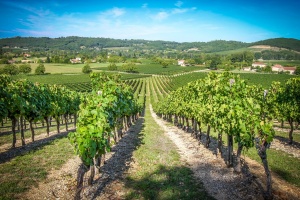French authorities give thumbs up to hybrids, to mixed response

The French government has given the green light for the introduction of new hybrid grape varieties, developed by the French National Institute for Agronomic Reserch (Inra) in an attempt to produce more disease resistant grapes.
The new varietals include Floreal, Vidoc, Voltis and Artaban, and are designed to be resistant to downy and powdery mildew, at a time when producers are bemoaning the scourge of downy mildew which has been an unwelcome presence across French vineyards during the 2018 season.
This comes as a bit of a breakthrough for a country which has largely been dismissive of hybrids while countries such as Germany and Switzerland are endlessly experimenting with. France, on the other hand, has remained until now opposed to the “rape” of Vitis Vinifera, and their strong opposition to hybrids probably played a big role in slowing the development of the genetic manipulation of the vine.
However, attitudes are changing along with the climate, and producers are learning from their mistakes – for example, fungus resistant hybrids developed in the 19th century were being used in nearly a third of French vineyards by the 1960’s.
“My reaction is simple: finally, not a moment too soon,” said winemaker Laurent Delaunay speaking to Wine Searcher. "Vine degeneration and vine diseases such as esca are causing, in certain regions, up to 20% of loss of harvest. Since the only cure we currently have against esca, sodium arsenite, was banned for obvious reasons, the industry has lacked a viable solution. New grape varieties including hybrids are one of the answers to these challenges and it's a shame that, contrary to what happens in other countries like Switzerland, which is well ahead of schedule, everything in France takes so long."
However, Delaunay says he would consider planting these new hybrid varieties "only as an experiment," citing the fact that consumers need time to get used to these new varieties should they become a permanent feature of the French landscape. The AOC framework currently bans the use of hybrids, winemakers won't be able to put Chambertin or Morgon derived from Villard Noir on their labels.
And not all winemakers are enthusiastic about their introduction. "We won't be using them,” was the flat response from Louis Jadot. However, many leading viticulturist do believe the time is right for hybrid wines.
"The arrival of these new hybrids comes at an opportune time – a period where negative publicity over the usage of pesticides and herbicides in viticulture is rampant," says Dr Richard Smart, one of the world's leading viticulturists. "To that end they represent a positive development, at least in terms of helping growers to meet consumer demand. But whether this demand is based on evidence is another matter – the hysteria over the use of chemicals has reached ludicrous levels, spurred on by the press," he adds.
But winemaker and consultant Thomas Dormegnies warned that this would result in a lot of old grape varieties being pulled up to make way for the new hybrids, particujarly in southern France."These laboratory varieties are for industrial winemaking and aim to compete with cheap wines from Spain. They are preparing us for a generation of cut-price wines."
